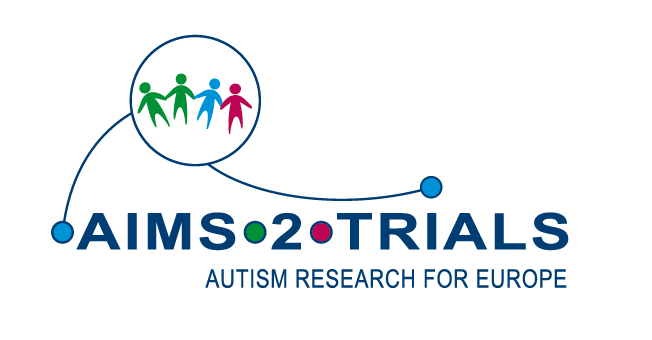
We are often contacted by autistic people and carers who are interested in taking part in a research study but don’t know where to start. This page will help you decide which of our studies you are interested in, whether there is a base close to where you live, and whether you meet the criteria.
In response to the COVID-19 crisis, many AIMS-2-TRIALS research project have paused study recruitment. The following studies are continuing to recruit participants, do please consider participating if you have the time and energy to do so.
If you are interested in finding out about more opportunities to participate in AIMS-2-TRIALS research, you can subscribe to recieve our Participation Opportunities, and Annual Public Newsletters via email.
Autism Services Access Study (ACCESS-EU)
What are we studying?
We are conducting a study exploring autistic people and their family carers’ access and experiences of a range of services across Europe and beyond. The project is called ACCESS-EU.
How will it help autistic people?
Findings from the study will be used to shape a policy brief document addressing the need to improve service availability and accessibility for autistic people across Europe. Feedback regarding the online survey, which was sought from Autism Representatives within AIMS-2-TRIALS (which includes autistic adults, parents and carers of autistic people from all across Europe), was incorporated into the final survey.
Who can apply?
We are hoping to hear from you if you:
- Are autistic and over 16 years old or are a parent/family carer of an autistic person of any age who is unable to complete the survey themselves.
AND/OR
- Have (or their autistic family member has) accessed (successfully and unsuccessfully) a service.
The survey is open to individuals (or carers with a family member) with a formal diagnosis of autism, those who are self diagnosed and/or waiting for an autism diagnostic service.
The survey takes 10-20 minutes to complete.
How do I get involved?
Read more about the study and take part using the links below:
Studying Autism and ADHD Risks (STAARS) Parent Attitudes Survey
What are we studying?
With the issue of data sharing becoming more and more prevalent in research today we want to explore how parents feel about how their own, and their child’s data, is shared with others. Focusing on what kind of data they are happy to be shared, who they are happy for their data to be shared with and how much control they would like to have over the process of data sharing. We further hope to understand parent attitudes towards current protocols of providing consent for their child’s data and participation in research. We hope this study will be able to show us what parents find the most acceptable way to move forward with making their own and their child’s data more easily shareable. Due to the online nature of this study we aim to get participants from a variety of different backgrounds and with differing amounts of previous experiences with research.
How will it help autistic people?
We hope that through this study we can learn how parents of autistic children feel about their data being shared. We understand that the concerns of parents of autistic children may be different than to parents of neurotypical children when it comes to data sharing and the types of data parents are happy to share with researchers.
Who can apply?
For this study we are looking to recruit parents of children under 16 years of age who live in the UK.
How do I get involved?
The survey is available online now. By following this link, you can also read more information about the survey and hopefully let us know what you think! For any queries please contact us at staars@bbk.ac.uk
Longitudinal European Autism Project (LEAP)
What are we studying?
Our first goal is to investigate the vast diversity of autism across development in terms of behaviour, cognition, brain structure and function, genetics, outcomes and commonly co-occurring conditions like epilepsy and anxiety. To capture the diversity of autism, the LEAP study also focuses on previously under-represented groups in autism research, including autistic women and girls and individuals with autism and intellectual disability.
Read more on the LEAP webpage.
How will it help autistic people?
We hope that this research will help us to:
- Understand how autism and commonly co-occurring health conditions (e.g. epilepsy, anxiety) develop from childhood to early adulthood.
- Identify features of autism and its co-occurring health conditions that can be measured, called ‘biomarkers’.
- Understand individual differences between autistic people, to develop more effective treatment options that are better tailored to each person’s needs, preferences and strengths.
Who can apply?
At King’s College London, we are recruiting new participants for our study. We are looking for participants who have epilepsy with or without a diagnosis of autism. We will mainly identify new participants through hospital clinics.
How do I get involved?
If you, or your child, have epilepsy (with or without autism) and would like to participate in our LEAP epilepsy study, please contact Dr Chirag Mehra at chirag.1.mehra@kcl.ac.uk
Brain Imaging in Babies Study (BIBS)
What are we studying?
We want to better understand early brain development. We use MRI to safely scan baby’s brain before or shortly after birth and follow-up how your baby develops for 3-4 years. We are interested in brain development in general and we have some specific questions. For example, we would like to learn about your baby’s family history, including whether your baby has a close family member with a condition like Autism or ADHD.
We have also been given ethical approval to include testing for COVID-19 and the immune response in the mothers and children participating in our study. This may give us an opportunity to better understand how mother and baby respond to infections. We welcome mothers who have had a positive COVID-19 test during their pregnancy to join our study.
Read more on the AIMS-2-TRIALS BIBS information page, or KCL’s BIBS Website.
How will it help autistic people?
We hope that this research will help us to better understand early brain development in all individuals but especially those with a family history of autism.
Who can apply?
We welcome you to apply if you are currently pregnant or recently given birth and have at least one of the following:
- If you and/or your partner have a diagnosis of Autism Spectrum
- If you have a child with a diagnosis of Autism Spectrum
- If you have tested positive for COVID-19 in your pregnancy
How do I get involved?
You can get in touch with a member of the BIBS team by emailing us at bibs@kcl.ac.uk
Study of Screening Diagnosis and Early Intervention in Children with Autism
If you are the parent, close relative, representative, or caregiver of a young person with a diagnosis of autism, aged 0-18-years, we invite you to complete a brief (~20 mins), anonymous online survey about your personal experiences of early autism screening, diagnosis and/ or intervention services.
For more details and to take part please click on the link below for your preferred language:
Preschool Imaging and Behavioural Project (PIP)
This is the first Europe-wide study to track the development of preschool children with and without autism and related neurodevelopmental conditions. The study involves researchers from the UK, Belgium, the Netherlands, France and Sweden. The project is part of the AIMS-2-TRIALS and CANDY consortiums. See here for more information and details about taking part
Testing arbaclofen for social difficulties
We are testing medicines to see if they can help autistic people who want them
The process of fully testing a medicine to ensure that is effective and safe is called a clinical trial. In this clinical trial we are testing the medicine arbaclofen, which is thought to improve social difficulties in children and adolescents with autism. If our trial is successful, arbaclofen could ultimately become the first medicine to help autistic people with social interactions.
Click here to read more and to find out how to participate in France, Spain and the UK.







